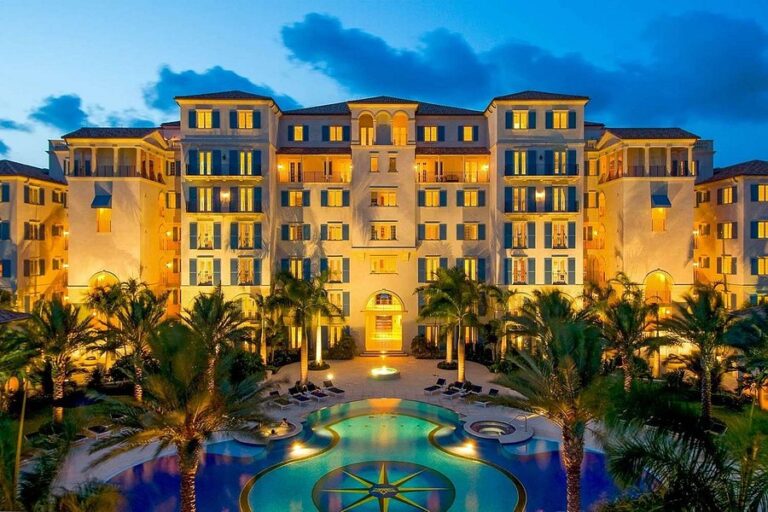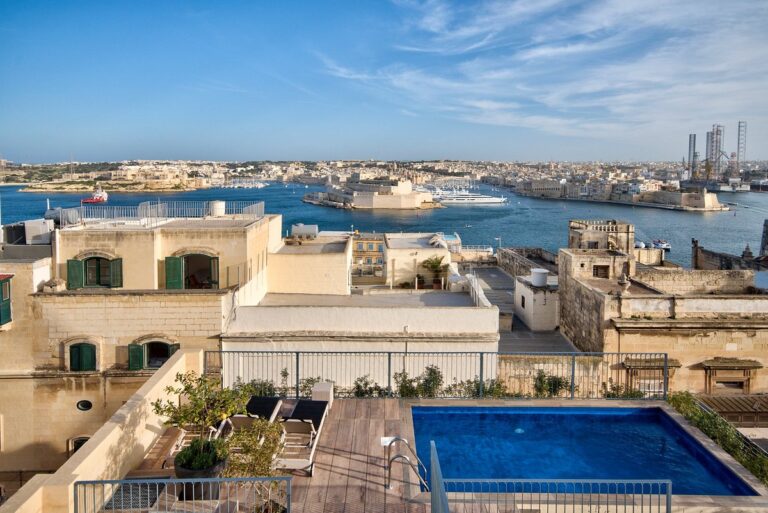Malta is a Mediterranean jewel blending rich history, stunning coastlines, and vibrant culture. Key highlights include Valletta’s Baroque charm, Mdina’s medieval streets, the crystal-clear waters of the Blue Lagoon on Comino, and Gozo’s scenic landscapes.
Optimal travel months are April to June and September to October for pleasant weather and fewer crowds. Budget travelers can expect daily costs from €60 to €120, with tips on saving through public transport and local eateries.
Safety is excellent, but sun protection and hydration are essential. This guide covers where to stay, how to get around, must-try activities, local insights, emergency contacts, and more—everything you need for an unforgettable Maltese adventure.
Why Malta? A Mediterranean Treasure Worth Exploring
Malta’s compact size belies its incredible diversity. From UNESCO World Heritage sites and ancient temples older than the pyramids to turquoise lagoons and lively festivals, it offers an immersive experience for history buffs, beach lovers, and foodies alike.
I’ve visited multiple times, and each trip reveals new hidden gems—the warm Mediterranean sun, welcoming locals, and the intoxicating blend of cultures make Malta addictive.
Best Places to Visit in Malta: My Personal Top Picks
Valletta—The Historic Capital
Valletta is a Baroque masterpiece. Don’t miss St. John’s Co-Cathedral with its breathtaking Caravaggio paintings and the Upper Barrakka Gardens offering panoramic views of the Grand Harbour. The city’s compact streets are perfect for wandering, with charming cafes and rooftop bars for sunset cocktails.
Mdina—The Silent City
Step back in time in Mdina, Malta’s medieval walled city. Its tranquil cobblestone streets and stunning views from the city walls create a magical atmosphere. Nearby Rabat offers local cafes and the famous pastizzi, a flaky savory pastry you must try.
Comino & Blue Lagoon
The Blue Lagoon on Comino Island is a must-visit for crystal-clear turquoise waters perfect for snorkeling, kayaking, or simply sunbathing. Arrive early to beat the crowds, rent sunbeds, or take a glass-bottom boat tour to explore underwater caves.
Gozo Island – Nature & History
Gozo offers a peaceful contrast to Malta’s busier spots. Explore the ancient Ġgantija Temples, the stunning cliffs of Dwejra Bay, and the red sands of Ramla Bay. The island’s slower pace and natural beauty make it ideal for hiking and photography.
Activities to Try: From History to Adventure
- Historical Walking Tours: Join guided tours in Valletta or Mdina to uncover Malta’s layered history and fascinating stories.
- Snorkeling & Diving: Explore underwater caves and reefs around Comino and Gozo, renowned for clear waters and marine life.
- Boat Trips: Take speedboat tours to sea caves or ferry rides between islands for spectacular coastal views.
- Local Food Tasting: Sample Maltese specialties like fenek (rabbit stew), pastizzi, and fresh seafood at local markets and tavernas.
- Festivals & Events: Visit during April for the International Fireworks Festival or July for the Jazz Festival in Valletta.
How to Stay Safe & Healthy in Malta
Malta is generally very safe for travelers. Petty crime is rare, but keep an eye on belongings in crowded areas. The Mediterranean sun is intense—always wear high-SPF sunscreen, hats, and sunglasses. Drink plenty of water, especially when exploring outdoors. Emergency services can be reached by dialing 112.
Where to Stay: Neighborhoods & Accommodation Tips
Accommodation ranges from budget guesthouses to luxury hotels. Here are my recommendations based on experience:
Booking early, especially in peak seasons (summer), can save you money. Consider apartments or guesthouses for longer stays and local immersion.
Typical Costs & Suggested Budgets for Malta Travel
Here’s a realistic daily budget breakdown based on my travels:
Hostels or budget guesthouses, public transport, street food, and self-guided tours.
3-star hotels, a mix of restaurants, taxis or car rentals, and paid tours.
4-5 star hotels, fine dining, private tours, and car hire.
Money-saving tips: Use Malta’s efficient bus system (€1.50 per ride), eat at local bakeries and markets, and book ferries early for discounts.
How to Get Around Malta Efficiently
Malta’s public bus network is extensive and affordable, connecting major towns and tourist spots. For convenience, apps like Bolt offer reliable ride-hailing services. Renting a car is ideal for exploring rural Gozo or hidden beaches, but remember Malta drives on the left. Walking is the best way to explore Valletta and Mdina.
Best Time to Visit Malta & How to Get There
The best months to visit are April to June and September to October, when the weather is warm but not scorching, and crowds are thinner. July and August are peak summer with vibrant nightlife but higher prices and intense sun.
Malta International Airport (MLA) connects to major European cities with budget and full-service airlines. From the airport, taxis, shuttle buses, and car rentals are readily available.
Tours & Experiences You Shouldn’t Miss
- Valletta Walking Tour: Dive deep into Malta’s capital with a local guide.
- Blue Lagoon Boat Tour: Snorkeling and swimming in pristine waters.
- Gozo Island Day Trip: Visit Ġgantija Temples and scenic bays.
- Three Cities Dghajsa Ride: A traditional boat ride across the Grand Harbour at sunset.
Recommended Length of Stay
To truly savor Malta’s highlights without rushing, I recommend a minimum of 4 to 5 days. This allows time for Valletta, Mdina, a day trip to Gozo, and a relaxing day at Comino’s Blue Lagoon. For a more immersive experience, a week or longer lets you explore hidden villages, beaches, and local culture at a leisurely pace.
Personal Insights & Pro Tips from a Local Traveler
- Book Blue Lagoon boat trips early in the morning to avoid crowds and secure sunbeds.
- Carry small cash (€1-10 notes) for ferries, beach chair rentals, and local markets—many places don’t accept cards.
- Wear water shoes for rocky beaches and explore hidden coves accessible only by foot or boat.
- Try Maltese wines and bring a bottle or two home—local vineyards produce excellent varieties.
- Use the Valletta ferry to the Three Cities for a scenic and affordable alternative to buses.
- Download offline maps and bus schedules to navigate easily without internet.
Emergency Contacts & Useful Links
- Emergency Services (Police, Fire, Ambulance): 112
- Tourist Police: +356 2295 1295
- Malta International Airport Info: maltairport.com
- Malta Public Transport: publictransport.com.mt
- Malta Tourism Board: visitmalta.com
Interactive Map: Key Malta Destinations
Frequently Asked Questions About Malta Travel
When is the best time to visit Malta?
The best time to visit is during spring (April to June) and autumn (September to October), when the weather is pleasant and tourist crowds are smaller.
Is Malta safe for solo travelers?
Yes, Malta is very safe with low crime rates. Standard precautions apply, especially in crowded tourist areas.
How do I get from Malta to Gozo?
Regular ferries run between Ċirkewwa (Malta) and Mgarr (Gozo) approximately every 45 minutes. The crossing takes about 25 minutes.
What currency is used in Malta?
Malta uses the euro (€). Credit and debit cards are widely accepted, but small cash is handy for ferries and markets.
Do I need a visa to visit Malta?
Malta is part of the Schengen Area. EU citizens do not need a visa. Visitors from many countries can enter visa-free for short stays; check official guidelines before travel.
To fully enjoy Malta’s magic, pace yourself and blend sightseeing with downtime by the sea. The island’s charm grows when you take time to savor local cuisine, chat with friendly locals, and explore off-the-beaten-path spots.
WakaAbuja has made every effort to ensure that the information in this post was correct at the time of publication. However, we do not assume any liability caused by errors such as pricing, hours, or location details.
Please consult official websites or social media pages for the most up-to-date information.




